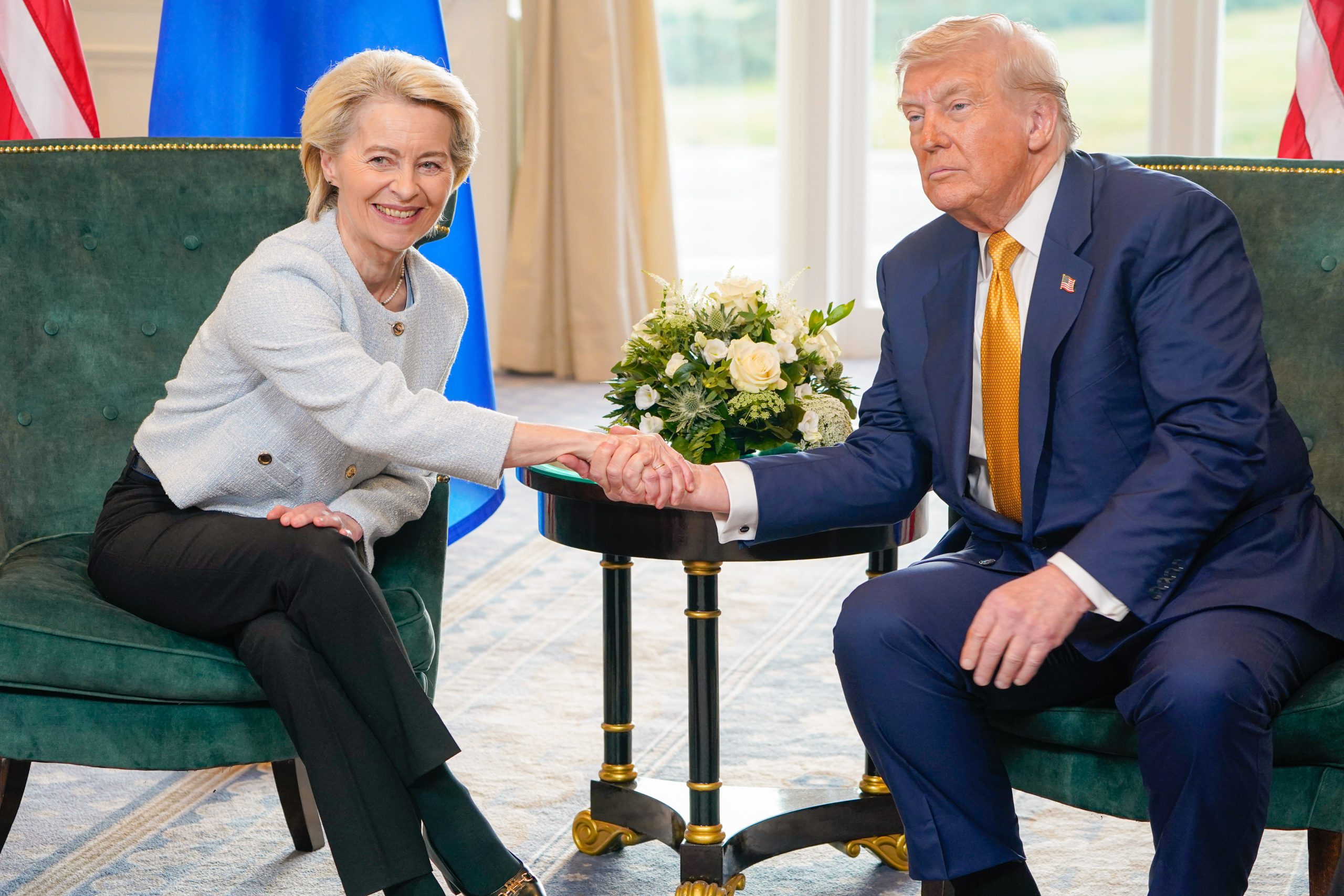- Articles / Government / White House
Trump GDP, tariffs and inflation data defy doomsday predictions as critics soften

Revenues from tariffs hit $150 billion on Tuesday, sparking legislation by Sen. Josh Hawley, R-Mo. He introduced the “American Worker Rebate Act,” which would issue $600 rebate checks to eligible Americans, including their children, to offset any costs associated with higher prices caused by the tariffs.
Treasury Secretary Scott Bessent recently estimated that tariff revenue could hit $300 billion by the end of the year and Trump expounded on the success of the tariffs when he told Just The News, “We’re taking in tremendous amounts of money. You saw that we had a $25 billion surplus last month. And the tariffs haven’t really started by comparison to what they will be. We’re doing them on cars right now, cars and steel, mostly, but the other ones kick in on August 1, and they’re very substantial.” Other nations that could be announcing trade deals with the United States include India and Vietnam.
Trade deals happening
Trump has now brokered important trade agreements with the United Kingdom, Japan, the Philippines, Indonesia, and as of today, South Korea. However, the European Union trade agreement might be the most significant deal yet. Shanker Singham, who served as a cleared advisor to the United States Trade Representative and the Department of Commerce, spoke to Just The News about its importance.
“Why the EU is significant is, it has been very, very difficult for the U.S. and the E.U. to agree on anything in the area of trade for decades,” he said. “There have been lots of attempts to do Trans-Atlantic Trade Agreements, to do the Trans-Atlantic Trade and Investment Partnership. None of it has worked over the last 25 years. This is the first time that there’s been a deal of any kind, really, of this kind of level between the US and the EU,” Shanker continued.
Consumer confidence rises
The Conference Board’s Consumer Confidence Index rose 2.0 points to 97.2 in July, exceeding economists’ expectations of 95.4, driven by a 4.5-point increase in the Expectations Index to 74.4.
Despite doomsday rhetoric by Democrats, the new figures signal a decrease in pessimism about future economic conditions. Factors like expectations of business conditions, current conditions, expectations for employment and expectations for family income are factored into the index.
GDP up by 3%
The U.S. economy grew at an annualized rate of 3.0% in Q2 2025, according to the Bureau of Economic Analysis, defying critics who predicted a slowdown due to President Trump’s tariff policies and global trade tensions.
This growth, which was a sharp rebound from the alarming -0.5% contraction in Q1 2025, exceeded expectations of around 2% from sources like Investing.com, suggesting it was driven by a significant decrease in imports and a surge in consumer spending.
Despite warnings from economists and business leaders about potential GDP shocks from tariffs, the economy’s resilience—bolstered by strong labor markets and consumer confidence—has contradicted forecasts of stagnation, with the Atlanta Fed’s GDPNow model aligning closely at 2.9%.
An obstinate Fed’s refusal to adjust rates
Federal Reserve Chairman Jerome Powell announced Wednesday that interest rates would remain at 4.50%, despite optimistic economic factors. “My colleagues and I remain squarely focused on achieving our dual mandate goals of maximum employment and stable prices for the benefit of the American people,” Powell said during a press conference.
Powell has long held that his decision not to lower interest rates is out of an abundance of caution: “Despite elevated uncertainty, the economy is in a solid position, the unemployment rate remains low, and the labor market is at or near maximum employment. Inflation has been running somewhat above our 2% longer-run objective.”
Trump criticized the decision Wednesday, telling the press, “Each point costs us $365 billion. We could save $365 billion. He’s done a bad job.”
Critics soften, reconsider
Comedian and talk-show host Bill Maher first hoped for a recession to hurt Trump’s reelection in 2020 and then again in April to change Trump’s tariff policies. He also declared that Trump’s tariffs are “a** backwards” and would “tank” the economy by Independence Day.
Maher, like others, is now singing a very different tune. “The truth is, I don’t know what his strategy is. But look, the stock market is at record highs. I know not everybody lives by the stock market, but I also drive around,” he said on his Club Random podcast. “I don’t see a country in a depression at all. I see people out there just living their lives. And I would have thought — and I gotta own it — that these tariffs were going to f*cking sink this economy by this time — and they didn’t.”
Kenneth Langone, billionaire and Home Depot co-founder, expressed reconsideration as well.
Just months ago, Langone called tariffs “bullsh*t.” After Trump’s string of economic successes, Langone was unambiguous when he admitted he was wrong. The influential businessman told CNBC’s Squawk Box in July, “Look, let me tell you right now, I am sold on Trump. In fact, I’ll say this: I think he’s got a good shot at going down in history as one of our best presidents ever.”
